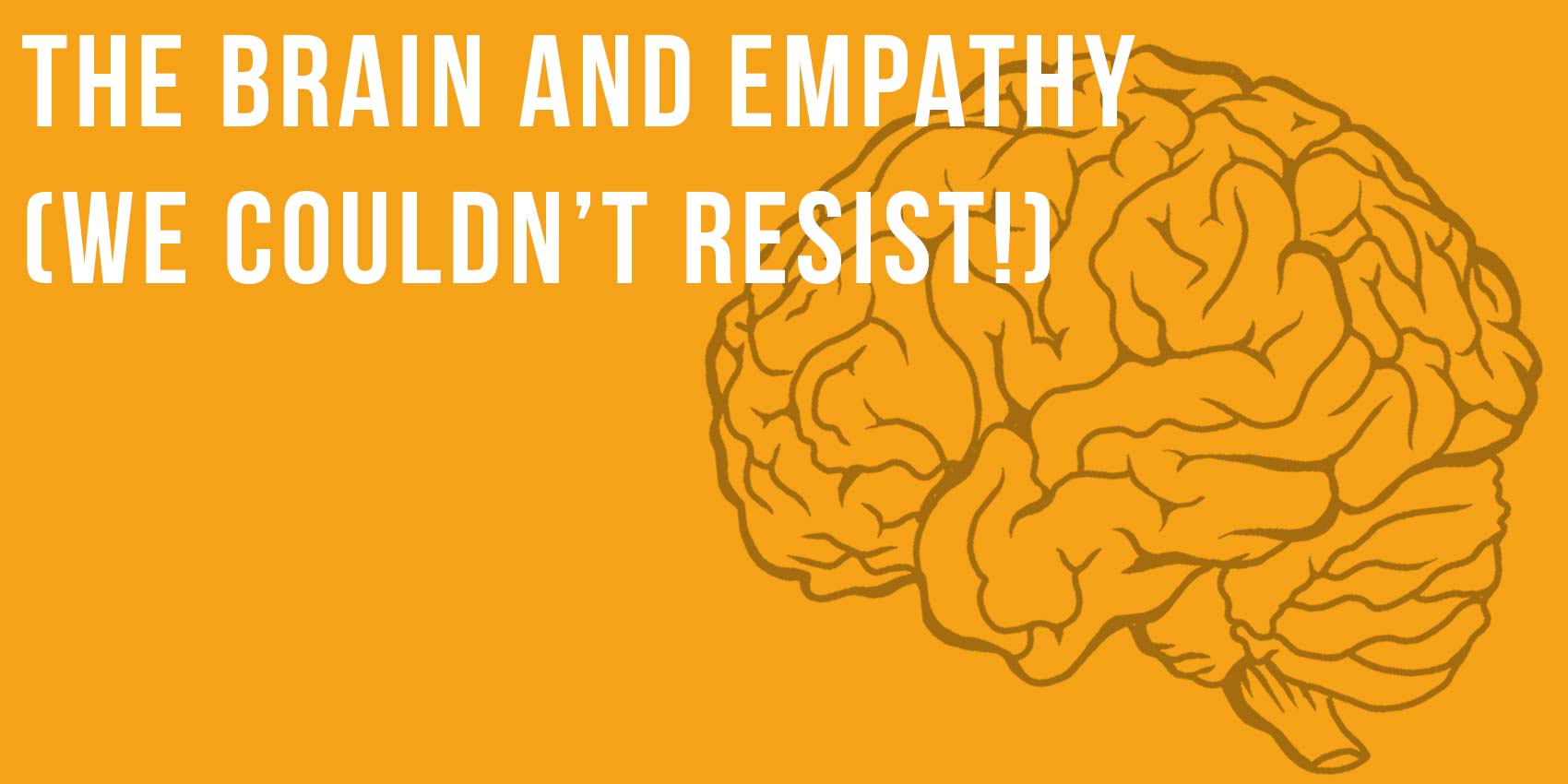14 Jan The brain and empathy (we couldn’t resist!)

Your brain has special neurons that promote the experience of empathy. They are, according to researcher Vilayanur Ramachandran, quite possibly the very reason civilization and culture exist. When you reach for an object, like your phone when it rings, motor neurons in your brain fire. About 20% of those motor neurons are also actually “mirror neurons.” What are those? We are so happy you asked!
Mirror neurons light up not only when you reach for an object but when you WATCH someone else reach for an object. So when you watch your friend reach for his phone, mirror neurons in your brain are lighting up! This allows you to understand what your friend is doing. Ramachandran also suggests that this is how we learn things—through mirror neurons we are able to imitate and emulate (meaning to follow the example of) other people.
Furthermore, we not only have mirror neurons for motor actions (picking up a phone) but for sensory actions, like being touched. These mirror neurons are the basis for empathy. When you see someone being touched nicely, you empathize with how that may feel because of the mirror neurons in your brain. The same thing when you feel panic when someone is hit—you empathize because of those mirror neurons. And because of that, you may decide to do something to protect or help your friend. Without mirror neurons, you might not do anything at all.
(Source: http://www.ted.com/talks/vs_ramachandran_the_neurons_that_shaped_civilization.html)
But not everyone feels the same way about something because we all have different personalities, pasts, thoughts, feelings, etc. Because of that, although we have this great ability to empathize, we can sometimes “get it wrong.” We can think someone feels one way, because that’s how we would feel, but in fact, they don’t feel that way at all. That’s why communication is essential: asking the other person just how he/she does feel is still important to do at times.
Moreover, you can have difficulties actually empathizing, if you have a mismatch in mood. For example, if you are in a really great mood and your friend just got cut from the basketball team, you may have a harder time having empathy for your friend because your emotions simply aren’t in the sad space with him. You’re in a happy space. Switching over to the sad space takes a lot of brain work and does not come easily to some people. That’s normal. In fact, (don’t faint) but there is a region of your brain that helps you switch on over to relate to the other person’s feelings. The region is called the right supramarginal gyrus. It helps us distinguish our emotional state from another person’s.
If you find it difficult at times to relate to someone’s emotions, don’t panic: it’s sort of normal in the teen years. But as you grow, and practice empathy, being empathic will become easier because the part of the brain that controls the switch will have matured… especially when you concentrate on using it now.




Post Question:
Have you ever misread someone else’s feelings? Tell us how you felt and how they felt.
Answer the post question here
What's being said